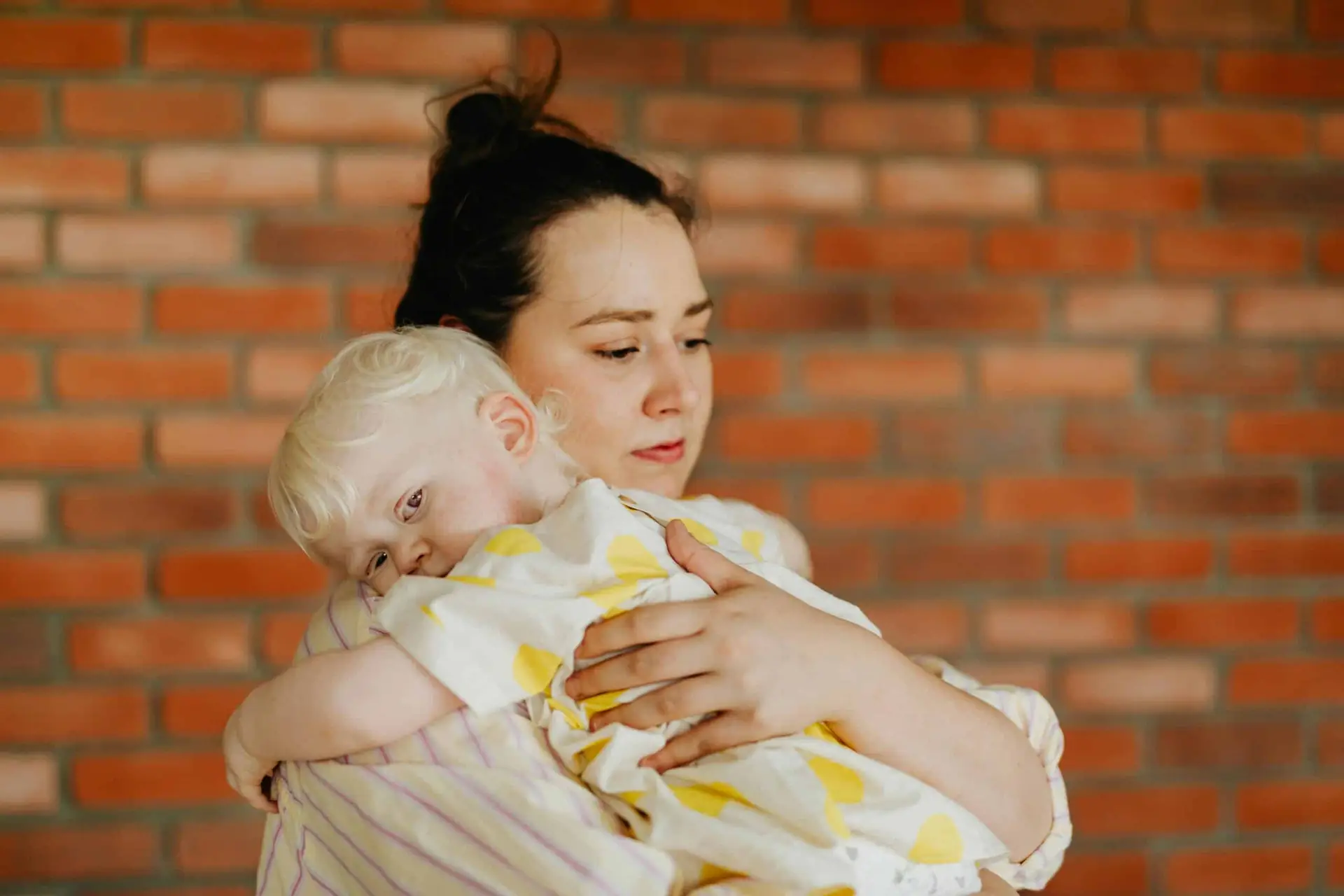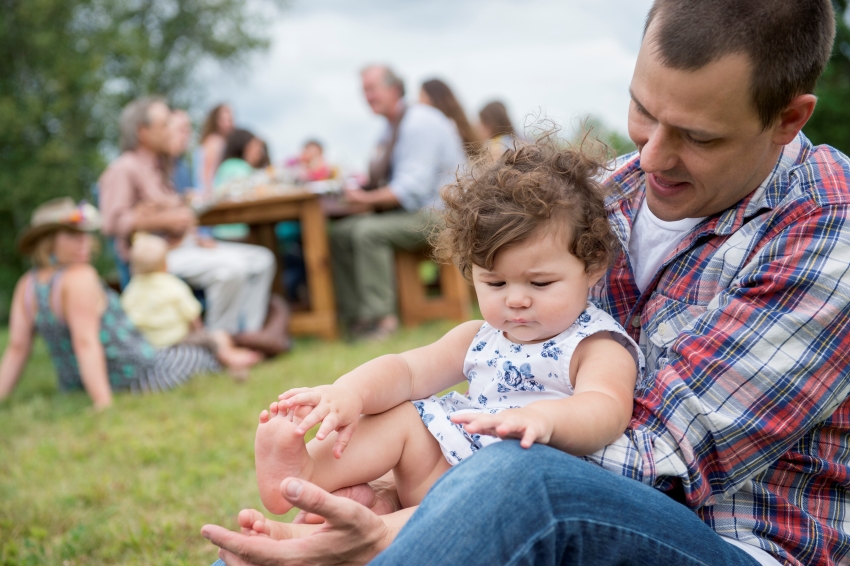Key takeaways for caregivers
- Parents sometimes avoid talking about science with their children, fearing they might provide inaccurate or misleading information.
- Watching science television can help families engage in interactions that more effectively help children learn about science.
- In our research, parents who watched educational science television programs demonstrated more science knowledge, formulated more accurate scientific explanations, and engaged in higher-quality science conversations than parents who did not watch the programs.
- However, parents do not need to be experts to talk to their children about science.
- Science is a process of discovery, and modeling that process is just as important as teaching science information.
“Mom, why is it cold outside?”
Questions like this might catch parents by surprise. They might feel unprepared to answer and struggle to clarify what their child is asking or have trouble recalling the correct explanation. Putting a response in age-appropriate terms can add to the challenge.
Science is not just about knowing the right answer – it is also a process of learning and discovery.
These difficulties often lead parents and other caregivers to avoid talking about science with their children. However, science is not just about knowing the right answer – it is also a process of learning and discovery.
As researchers, we wanted to find ways to support parents in these moments. To do so, we turned to one of the most popular educational resources that families use together: science television.
What is children’s science television?
In recent years, the number of science television programs available for young children to watch has skyrocketed.
These programs cover a wide range of topics, including biology (e.g., Dinosaur Train), physics (e.g., Blaze and the Monster Machines), and outer space (e.g., Ready Jet Go). They also cater to different age groups, ranging from preschool (e.g., Octonauts) to late elementary school (e.g., Sci Girls).
Often, episodes of these programs begin with a provocative science question (e.g., “Why is the sky blue?”), which characters answer by engaging in a series of trial-and-error investigations. Along the way, the characters befriend vibrant and imaginative creatures, including familiar figures that many children know and love (e.g., the Cat in the Hat).
How do science television programs support parents?
We hypothesized that science television can support parents and other caregivers in several ways:
- By refreshing knowledge: These programs are rich in factual science content, which may refresh caregivers’ knowledge and can also teach them new science concepts.
- By building confidence: Presenting complex ideas in an age-appropriate narrative may help parents feel more confident when answering their children’s science questions and improve the science explanations they provide.
- By encouraging collaboration: Science programs may remind caregivers that they do not need to always have all the answers, and that it is okay to learn with their children.
To examine these possibilities, we conducted three studies with different groups of families, settings, and research methods.
Science television improved parents’ science explanations
We conducted our first proof-of-concept study online. We recruited 141 U.S. parents of three- to six-year-olds. About half of parents and children were female and half male. Most parents were between 25 and 40 years old, most self-identified as White, and almost half reported having at least a college degree. We randomly selected some parents to watch two four-minute videos from the science program Earth to Luna. One video featured science information about the day/night cycle and one featured science information about butterflies. Other parents did not watch the videos.

Photo by Vitaly Gariev on Pexels
After each video, we asked parents a series of science questions (e.g., “Why does day turn into night?”), and we invited them to respond as if they were talking to their child. Parents who were randomly selected to not watch the videos skipped straight to responding to the science questions as if they were talking to their child.
Parents who watched the videos before responding formulated explanations with more science facts (e.g., the earth rotates) and fewer scientific misconceptions (e.g., the sun goes to sleep) than parents who did not view the videos. These findings offered preliminary support for our assertion that parents extract useful information from children’s educational television.
However, this initial study had clear limitations – it was conducted online and relied on hypothetical questions from children. To better assess the impact of science television, we needed to observe families as they engaged in actual science conversations.
Science television imparted knowledge to mothers and boosted their confidence
In our second study, 46 U.S. mothers and their four- to five-year-olds visited our lab at Ohio State University in a large urban part of the United States. Most mothers were 30 to 40 years old and most self-identified as White. Most mothers also described their children as White, and just under half of the children were female. We focused on mothers because they are generally more likely than fathers to watch educational television with children.
Mothers who watched the conceptual video demonstrated more knowledge about rocks than mothers who watched the video emphasizing science inquiry skills.
Mother-child pairs were randomly assigned to watch one of two 10-minute videos from the science program Sid the Science Kid, which focused on the concept of rock identification. One video emphasized conceptual information about rocks (i.e., distinguishing igneous from metamorphic rocks), and the other video emphasized science inquiry skills (i.e., observing and describing rocks).
We then examined whether these videos affected mothers’ relevant conceptual knowledge, confidence about teaching their children related content, and engagement during a hands-on rock identification activity with their children.
Mothers who watched the conceptual video demonstrated more knowledge about rocks than mothers who watched the video emphasizing science inquiry skills. In contrast, mothers who watched the inquiry video felt more confident teaching their children about rocks than mothers who watched the conceptual video. Despite these improvements, neither video affected what mothers said to their children during the activity.
These findings suggest that science television can provide some content and confidence support for parents. However, this study had too few participants to draw stronger conclusions. Additionally, our audio recordings of parent-child conversations were somewhat low in quality, which made it difficult to assess children’s contributions (e.g., they were often quieter).
Science television supported parent-child science conversations
In our final study, we addressed the limitations of our previous work by recruiting 116 U.S. parents (about 30% were fathers) and their four- to seven-year-olds. Just over half of the children were female and most of the parents and children were White.
The study took place in a quiet space at a children’s museum in Columbus, Ohio. We invited families to watch a five-minute video from the science program Hero Elementary and to complete a five-minute science activity. Both the video and the activity involved an early engineering concept (i.e., tower stability).

Photo by RDNE Stock project on Pexels
We randomly assigned half of the parent-children pairs to watch the video before the activity and half to watch the video afterward. We also used a higher-quality audio recorder to allow us to analyze parent-child conversations in greater depth.
Watching the video before (rather than after) the activity motivated parents to ask more science questions during the activity. Using an advanced form of dialog analysis, we also examined the patterns in conversational turn-taking that unfolded after parents’ questions.
Children who watched the video before (rather than after) the activity were more likely to formulate science explanations in response to parents’ questions. Without the video, they usually responded by revealing their lack of knowledge (e.g., by saying “I don’t know”).
Recommendations for caregivers
Collectively, our research suggests that science television can support parents by increasing their science knowledge, improving their scientific explanations, and facilitating higher-quality science conversations. These improvements have downstream benefits for children, such as improved learning from joint science activities.

Photo by RDNE Stock project on Pexels
Our studies focused on U.S. families who were predominately White and high-income. Additional research is needed to examine whether similar patterns emerge among other populations.
However, given the benefits we found, we encourage parents and other caregivers to watch science television with their children when possible and to seek out activities that reinforce lessons from these programs. These experiences can provide a shared language for discussing and exploring science in ways that are both tangible and fun.
Parents should not feel pressure to be science experts. Instead, they should emphasize the value of asking questions and seeking answers. Science television is just one platform through which shared learning can occur; families should explore other options in their community, such as zoos, museums, and public gardens.
Science is a process of discovery. Encouraging children to participate in that process is just as important as teaching them science information.
The post Children’s science television: Not just for children appeared first on Child and Family Blog.











